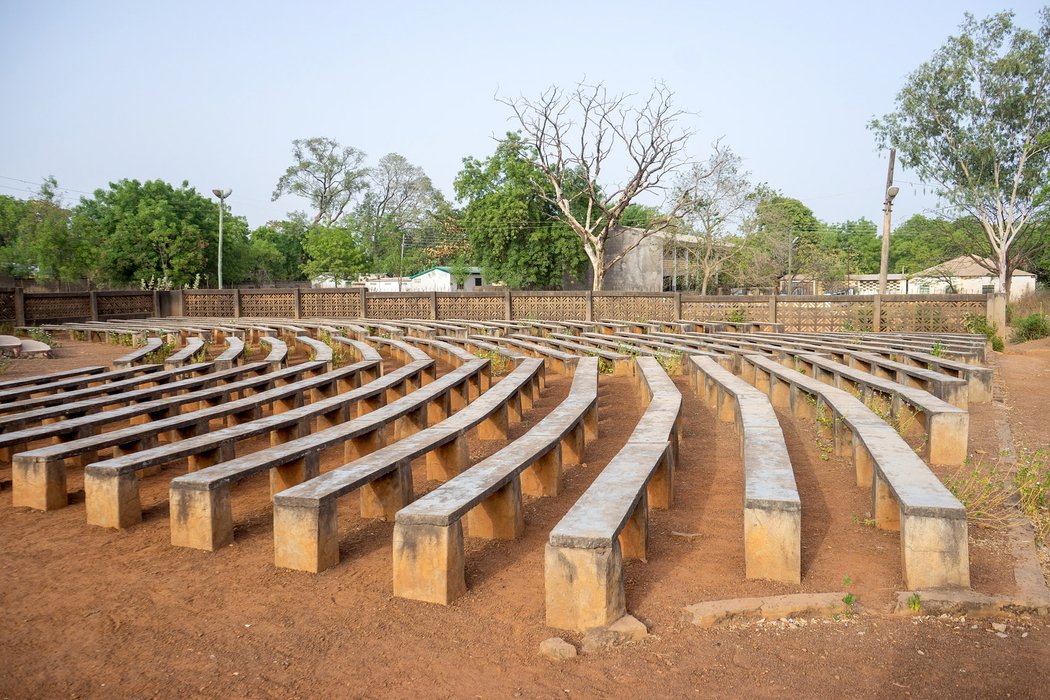Bolgatanga

About an hour north of Tamale, the last town of any size before hitting the border with Burkino Faso is Bolgatanga -- referred to almost exclusively as "Bolga". (The full name is so rarely used, you might be met with confusion when saying it.) We spent four days in Bolga, using it mainly as a base for exploring the surrounding area. On the day we arrived, though, we spent the afternoon seeing the sights. Such as they are.

I don't mean it with any disdain, but Bolga simply doesn't have much to interest the foreign visitor. In fact, we were hard pressed to find anything to do. We took a tuk-tuk (or Yellow-Yellow as they're called here) into what felt like the center of town, and commenced aimless wandering. This was fun, if only because we were in a new spot, but we realized quickly that not dedicating an entire day to Bolga had been the right decision.
After passing the Sacred Heart Cathedral, and the half-finished bulk of the surprisingly large auditorium it will soon possess, we found ourselves at Bolgatanga's Center for Culture. We've seen other "Centers for Culture" in Accra, Kumasi, and Tamale; it seems to be a common idea. The one in Accra is a place you should avoid at all costs, as the hassle engendered by coming anywhere within its orbit is indescribable. Kumasi's is alright, if only because it is home to the tourism office and the Prempeh II Museum. In Tamale, we found a local drum-and-dance group practicing at the Cultural Center. And in Bolga… tumbleweeds.
There were a couple craft shops, but the utterly bored owners didn't even bother trying to wave us over. We were about to make an exit, when noticing a sign for an ethnographic museum, tucked around the back of the Cultural Center's yard, out of sight from the road. Without anything else to do, and in no hurry to explore the rest of Bolga, we stepped inside.

As luck would have it, this collection of ethnic curios, photographs, and farm implements was pretty great, thanks in large part to the guide, Joshua, who seemed overjoyed by our presence. With tremendous enthusiasm, he introduced us to every piece in the collection, which was fine, thanks to the museum's small size. He showed us pictures of the festivals, described how people would be buried down vertical tunnels dug straight into the ground, played a couple of the instruments for us, and told us about his own tribe.
The tour was interrupted by the the sudden disappearance of power. Though there was enough light to continue, the heat almost immediately became unbearable. Bolga is possessed of an intense, dry heat, quite unlike the country's central and southern regions, and Joshua correctly sensed that our interest in the museum had vanished along with the air conditioning. We said goodbye, and headed back out into the streets of Bolga.
















